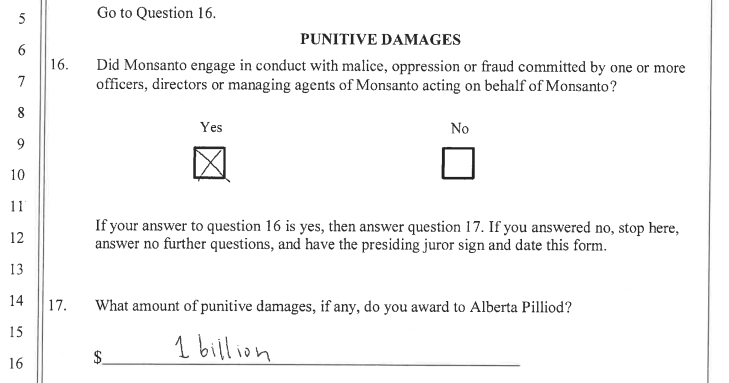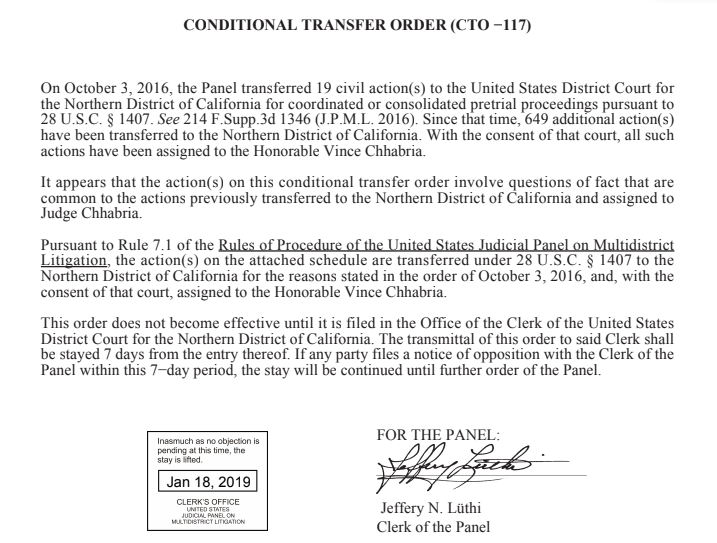“It seems inequitable for a manufacturer to rely on that very uncertainty to finagle out of liability."




YES
2. Was the design of Roundup a substantial factor in causing harm to Alberta Pilliod?
YES
Past economic loss: $201,166.76
Future economic loss: $2,957,710.
Past noneconomic loss: $8 million
Future noneconomic loss: $26M
Past economic loss: $47,296.01
Past noneconomic loss: $8 million
Future noneconomic loss: $10 million
The juror: “That roundup is completely safe. I wanted you to get up there and drink it basically.”
















































